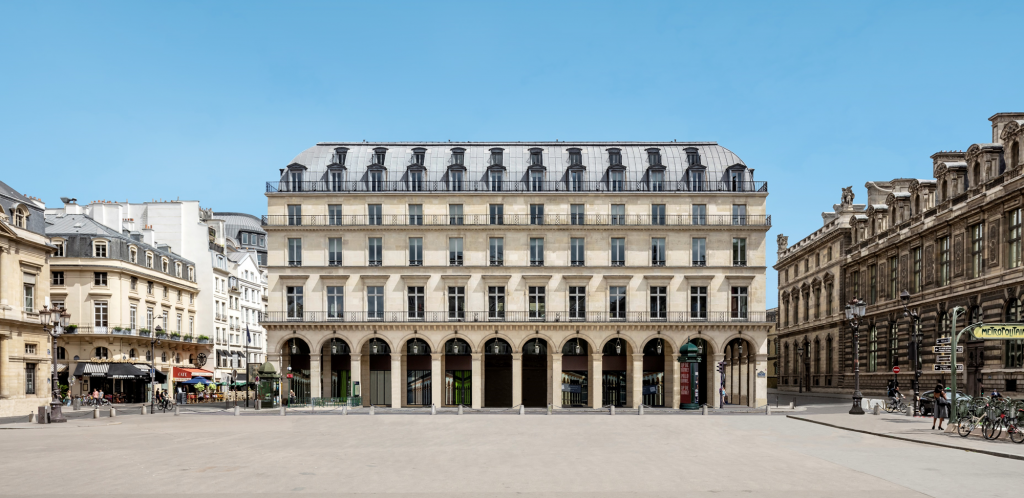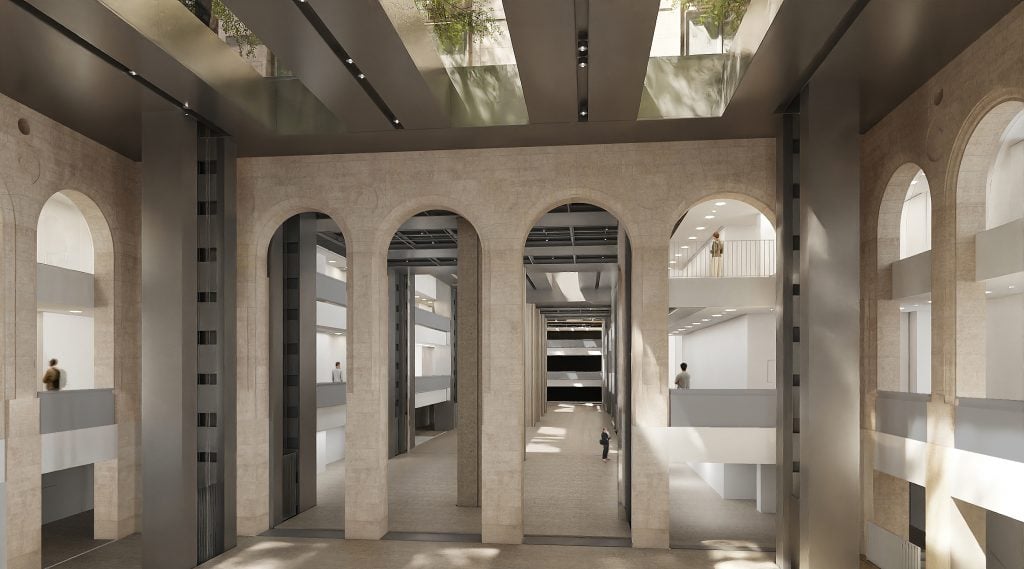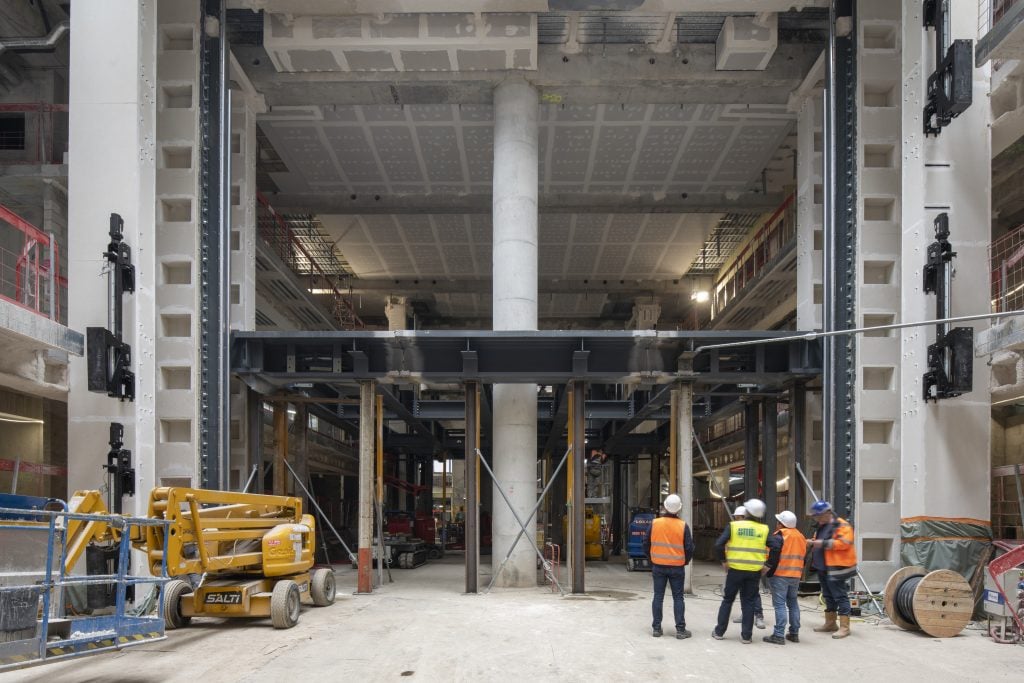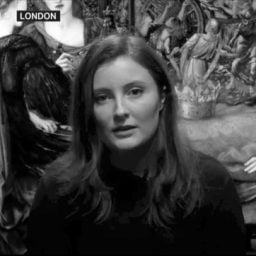Museums & Institutions
Fondation Cartier Unveils Plans for Its New Paris Outpost
The historic building near the Louvre has been renovated by French architect Jean Nouvel, who designed the foundation's current premises in 1994.

The Fondation Cartier pour l’art contemporain has revealed a first glimpse of its new location opposite the Louvre on Place du Palais-Royal in Paris, which will open to the public in 2025. The building’s interiors have been renovated by Jean Nouvel, the same architect who designed the foundation’s current premises on Boulevard Raspail in 1994.
Celebrating its 40th anniversary this year, the Fondation Cartier was established in the town of Jouy-en-Josas in 1984 before moving to Paris a decade later. In recent years, it has dedicated exhibitions to artists like Sarah Sze, Ron Mueck, Matthew Barney, Malick Sidibé, and Claudia Andujar. The foundation’s multi-decade history is being recounted in a new podcast series “Voir venir, Venir voir,” which launches today.
Compared to the strikingly modern building made of glass and steel that Fondation Cartier current inhabits, the new location is a classical Haussmannian building on Place du Palais-Royal. It originally opened as a five-star hotel in 1855 before becoming a department store in 1863. Since 1978, it has been known as the Louvre des Antiquaires and has housed hundreds of antique shops and galleries.

Rendering of interior by Jean Nouvel for Fondation Cartier pour l’art contemporain in Paris, opening in 2025. Image courtesy of Fondation Cartier.
On the facade’s first floor are bay windows that connect the street to an entirely reimagined interior that blends historic elements with modern innovations in a vast complex containing 91,493 square feet of public space, 69,965 square feet of exhibition space that can be further expanded using five mobile platforms to create custom layouts for different projects. The foundation’s original space is much smaller, at just 13,000 square feet.
“From its creation, the Fondation Cartier pour l’art contemporain has based its activity around three major principles that still hold true today,” said its founding president Alain Dominique Perrin. “The first is the central position granted to artists and artistic production, including artists already known to the general public as well as emerging figures.”
The second is the focus on “transversality,” according to Perrin, meaning that the space is dedicated to all forms of creation, from painting to photography, architecture to film, design to fashion, and more. The third is the strict separation between the Fondation Cartier’s activities and the commercial development of Maison Cartier.

Chantier Palais Royal – Fondation Cartier pour l’art contemporain under construction in May.
Nouvel has worked on several major museums internationally, including the National Museum of Qatar in Doha, the Louvre Abu Dhabi, the 2005 expansion of the Reina Sofia in Madrid, and the Musée du quai Branly in Paris. The glass and steel building that he made for Fondation Cartier in 1994 is notable for its lack of partitioning interior walls, creating a dynamic, open-ended exhibition space that some artists directly responded to.
“Moving into such an impressive site, in terms of location and history, entails a form of invention,” he said in a press statement. “And what is invented is not automatically seen in the steel or stone.”
He hopes that the renovation will be a source of inspiration for artists who exhibit at the Fondation Cartier. “The space is marked by a different way of doing: a way of conceiving how artists can have maximum power of expression,” he said. “A site such as this one calls for boldness, courage that artists might not necessarily demonstrate in other institutional spaces.”





